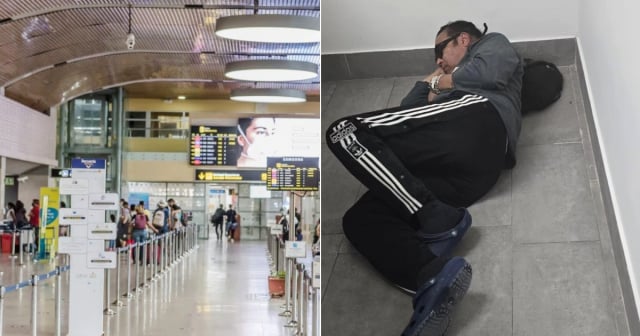José Antonio Cue Monzón, a young Cuban who was imprisoned for protesting in Matanzas during the historic demonstrations against the regime on July 11, 2021, and escaped to the United States, is at risk of being deported to Cuba, where he would have to face 10 years in prison.
After being part of the popular uprising that erupted spontaneously in more than 60 cities and towns across the country, Cue was arrested and imprisoned for four months before his trial was held.
The Cuban was sentenced to a decade in prison for the alleged crimes of "sabotage" and "public disorder," he told in an interview with journalist Alexis Boentes from Telemundo51.
Upon learning of the sentence and with a date set to enter prison, Cue decided to escape from Cuba. He and other Cubans built a makeshift vessel with 55-gallon drums and embarked on the risky adventure of crossing the Florida Strait.
"That was it. To throw myself into the sea or go to prison," Cue confessed, who brought with him to the U.S. a newspaper -Girón, the official newspaper of Matanzas- in which his name appears on the list of protesters from 11J sentenced in that province by the regime's courts.
It also carried documents from the popular court that prosecuted him, which are "evidence of a trial against him for demanding change in his country," Telemundo noted.
On July 11, 2021, the Cuban learns about the protests in the city where he lived and decides to join them. "Rumors started to spread that there were demonstrations on Real Street in Cárdenas. I see that, the town unleashed, demonstrating like it had never been seen before."
Cue reported that the protests were violently suppressed by the police. "The demonstration had already gotten out of their hands. They were afraid. The police were afraid," he stated.
What came next for hundreds of protesters, including him, was a calvary, and it continues to be for those who still remain in the regime's prisons across the country for peacefully protesting.
"Those cells are the most filthy, the most unpleasant that one can see. When night falls, cockroaches walk on your head. There's no water, there's the smell of urine. It's a locked room, there's no ventilation, (with) humidity. That's the most hellish thing there is," he recalled with regret.
Knowing what awaited him when he returned to prison to serve his sentence, Cue fled Cuba, but once on U.S. soil, he received a deportation order that could be enforced at any moment.
His immigration attorney, Eduardo Soto, is trying to halt the deportation order; however, Cue already has an appointment scheduled to appear before the Immigration and Customs Enforcement (ICE), according to Telemundo51.
Facing imminent deportation, the Cuban reported that for almost two years he has built a new life in the U.S. and fears losing something he has already experienced in that country: freedom.
"I feel free, fulfilled," he confessed, while pleading for "a second chance because I have a lot to contribute to this country."
During 2024, more than a thousand Cubans have been deported to the island from the U.S. and other countries in the region.
In recent weeks, several cases of Cubans with I-220B have been reported, who have been detained by U.S. authorities during their immigration appointments with ICE.
In contrast, the Foundation for Human Rights in Cuba (FHRC), which has identified a thousand Cuban repressors, recently reported that 117 had entered the United States since February 2023.
"Many of them are lying," assured Tony Costa, director of the NGO, in statements to Martí Noticias.
What do you think?
COMMENTFiled under:
